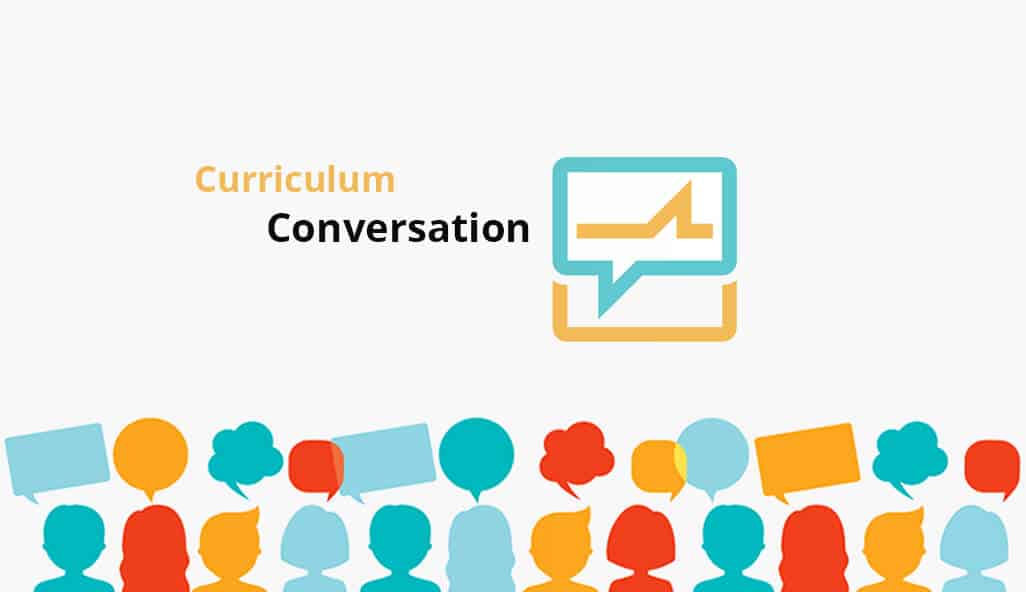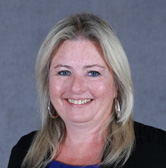
Suzy Gürkan
Director of Admissions (Istanbul International Community School)
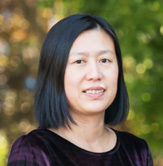
Ying Shya Pee
Admissions Manager (Western Academy of Beijing)

Kim Meaden-Kendrick
Registrar
(Brighton College Bangkok)
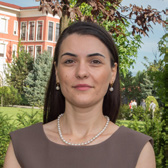
Diana Trisca-Rusu
Admissions Manager (British School of Bucharest)
We found that Maria English’s IB Survey gave us some interesting information and answered some questions we had about how admissions officers promote the IB programme at their schools. However, it left us wondering how experienced admissions officers might answer some of the tougher questions from parents on why they should choose a school with their curriculum. We recently caught up with four admissions officers at schools running different curricula to find out how they handle the more difficult questions.
How does your curriculum benefit my child?
SG: The IB MYP focuses on developing the Approaches to Learning of the students. These are communication skills, collaboration skills, problem-solving skills, information literacy and affective skills. The IB believes that developing these skills is vital for success in the IB Diploma, university and life after formal education. Students aiming to take the IB Diploma in Grades 11 and 12 also benefit from the continuity of terminology, assessment criteria and approach to teaching that the MYP can provide for them. Most UK universities require A Levels or IB Diploma for admissions. If the student has not completed the IB DP they are advised to complete a foundation year.
YP: IB focuses on each student as a whole person despite his/her unique learning styles, strengths and challenges. It addresses not only cognitive development but social, emotional and physical wellbeing. The aim is to develop inquiring, knowledgeable and caring young people with adaptable skills to tackle society’s complex challenges and who will help to make it a better, more peaceful world.
IB programs emphasize learning how to learn and teaching students to value learning as an essential, integral part of their everyday lives. The IB promotes the development of schools that:
- inspire students to ask questions, pursue personal aspirations, set challenging goals and develop the persistence to achieve those goals
- develop knowledgeable students who make reasoned ethical judgments and acquire the flexibility, perseverance and confidence they need in order to bring about meaningful change
- encourage healthy relationships, individual and shared responsibility and effective teamwork.
IB is not a curriculum, but rather a framework that allows instructors to plan their teaching depending on the learning that occurs. Students’ learning progress is measured and monitored through a range of assessment strategies including formative assessments that provide ongoing feedback that can be used by instructors to develop their teaching and by students to identify their strengths and weaknesses, and target areas that need improvement.
Summative assessments are used for older students which are internationally benchmarked and are criterion-referenced. This means students are measured against a set of agreed upon learning outcomes rather than graded on a “bell curve” as in normreferenced assessments.
KM: A Levels have almost universal credibility, the curriculum is based on the development of key transferable skills. Pupils are recognised for their ability to think critically and to problem solve, for using, rather than only gathering, knowledge. A Levels are certainly a better option for pupils who have weaknesses or preferences in certain subject areas (as most pupils do). IB unfortunately means that children are expected to take six subjects from various disciplines which means they invariably end up taking one or two subjects which they are not as strong at or passionate about, and whilst these can be taken at a standard rather than a higher level, the attainment is still critical in obtaining a full diploma pass. A Levels by comparison offer pupils a level of flexibility in their subject options. They can really be guided to take only those subjects which they are most passionate about and are most likely to excel at.
DT: One of the greatest strengths of the British educational system is the level of individual, tailored support it affords pupils from a very young age, with students learning at the pace and intensity that suits them, even within a single lesson. The British system provides a very broad education from the early years and then becomes more specialised as students progress through IGCSE and on to A Level.
In the British system the final stage in a student’s education is Key Stage 5. Independent learning is an important aspect of life during this period and it is expected that students will have already begun to think about future choices, careers and independent pathways. Students will be guided to carry out significant research into further education opportunities and employment possibilities. A Levels, like the IB are accepted by almost all universities globally. Several A Levels gain credits in some countries as it is acknowledged that the second ‘A2’ year is at a level equivalent to first year undergraduate studies.
Compared to the IB system, during the two-year A Level courses most students will pursue 4 subjects initially (and in exceptional cases 5) based on their interests and strengths. Herein lies the key difference and ultimately many students go onto complete the full A Level in 3 subjects. This level of specialisation is specific to A Level study. Most high quality schools offering A Level ensure that other aspects such as service opportunities and research-based projects are in place for students to ensure a breadth of provision and to match CAS and Extended Essay aspects of the IB.
How can you transfer from your school’s curriculum to national systems?
SG: Although IB students will have often covered different content and skills than students in any given national system, the IB’s focus on Approaches to Learning is designed to help students develop the skills to succeed in any academic system. When returning to a national system, students may find themselves slightly ahead or behind content wise when compared with peers, but they should have the skills necessary to help them successfully adapt.
The Turkish national system is heavily based on content and the assessments are solely exam based. MYP assesses students not just on content knowledge but also on real life applications, analysis and reflections on what the have learned in each course. The student will have a challenge transferring from MYP to the Turkish national system. Once the student is used to sharing their learnings extensively, transferring to an exam based system may be a tough transition. One other challenge for students is the language of instruction. If the student has always studied in English, switching to another language of instruction will always be difficult.
YP: The Chinese national education system is very different from IB. A student technically could transfer from IB into Chinese public school during elementary years should Chinese language not be a barrier.
However, based on the Chinese Ministry of Education’s rules and regulations, a student is unable to continue in High School if he/she passed the age of 14 and did not sit and pass the Middle School National Examination. Therefore, it is currently impossible for a student to transfer from IB to the Chinese national system after the age of 13.
Nonetheless, there are various public and private schools in China that have the provision of international school sections which offer IB or other international curricula to Chinese nationals who return to their home country or for those who plan to study abroad in the future.
KM: Transferring into any national system from the British curriculum should be relatively smooth and children accustomed to the British curriculum style of delivery are likely to have been well-prepared for a transition. There is a strong focus on core, transferrable skills and children being able to see the links between the subjects within the curriculum and the real world application of that knowledge. The academic rigour of the British curriculum gives children a very solid foundation on which to build their academic career.
DT: The British School of Bucharest is recognised by the Ministry of Education (ARACIP) in Romania and we had students joining Romanian Universities at the end of their Key Stage 5 programme. However, at the moment our school does not offer Romanian lessons during children’s timetables thus transferring to a public school might impose some difficulties given by the language barriers. An important part of the school curriculum at British School of Bucharest is the extracurricular activities programmes, which in the past have included Romanian lessons which are beneficial for those wanting to continue into a national system.
How does your curriculum’s diploma help my child in university and further on?
SG: The IB Diploma is highly valued by universities across the world. IB students typically receive good offers from UK, US, Canadian and European universities. In the US credit-based university system, scores of 5 or above in IB Higher Level courses will allow students to be exempt from taking certain required courses. IB Diploma students typically report that they find college academic work fairly straightforward after the demands of the IB Diploma Programme.
The IB Diploma Programme also allows the flexibility in choosing subjects of interest by choosing requirements from different groups. This selection helps the students when it comes time for career selection.
YP: IB Diploma (DP) students:
- know how to carry out independent research
- can demonstrate foreign language skills
- have confidence in public speaking
- contribute to current events with a global perspective
- give back to their communities through volunteering and community service
- study the language, history and arts of diverse cultures, and approach problems from multiple perspectives
- have excellent time management skills and are well-prepared for the rigor of college-level coursework.
Additionally, DP students take a 2-year long course to develop critical thinking skills, analysis, explore the Areas of Knowledge and Ways of Knowing (Theory of Knowledge (TOK)), as well as actively participate in Creativity, Activity, Service (CAS) projects. These skills help DP students to think and act on a local and global level.
DP students have a strong sense of cultural identity, and respect the values, differences, and perspectives of other cultures. They are also competent in a wide variety of the world’s languages – which is one of the most important skills highly sought after by the world’s employers.
With the distinctive and unique set of attributes mentioned above, DP students are well prepared to attend university or college, and to also confidently lead their future lives.
KM: A Levels prepare children very well for tertiary education due to the depth of the material covered and the discipline required to successfully complete the A Levels. In some instances the A Levels can gain pupils credit for courses they take in their first year at University or College.
Universities, and, ultimately, employers will tell you that their challenge is not to find school leavers who know everything already, but to find those who are intellectually curious, versatile and adaptable to differing situations: just read the much-published article on “How to get a job at Google”. A Levels help support pupils in these areas, meaning that, for example, they are not restricted to courses and careers solely based on these examinations. They have options, for they have learnt how to think.
DT: To avoid confusion, the A Level is not a Diploma and is not referred to by this name, whereas the IB is indeed the IB Diploma. However by the age of 18, the British educational system’s goal is to guide students to the most appropriate university course that aligns with their long term ambitions and the final qualifications that help to determine this are the grades achieved in the A Level examinations. These are globally recognised qualifications. Many students go onto higher education in the UK but the qualifications they study for, combined with the higher education knowledge provided by the British system, would allow them to study anywhere in the world including the USA and Canada.
In the British system and in the British School of Bucharest students play an important role in the school community during their Key Stage 5 programme, acting as a role model to younger students and contributing to the success of the whole school. They are provided significant opportunities for student leadership, opportunities to organise activities, mentor peers and to take a lead part in the House system and Prefect Team.
Contributions to school life and beyond will be recognised in the application process when students move into either higher education or employment, as the information they are able to give about their developing personality, skills and interests, both academic and otherwise, will form the basis of their personal statements and curriculum vitae.
How much of your curriculum focuses on academics and how much on socio-emotional wellbeing?
SG: Points scored in the IB Diploma Programme are still based entirely on academic performance. Students complete six subjects together with an Extended Essay and a Theory of Knowledge course, and their performance in these subjects results in a total out of 45. Students are also expected to complete a programme of Creativity, Activity and Service. Progress in these areas is monitored by schools but not included in the total points for the student. In the IB Middle Years Programme, there is a stronger emphasis on socio-emotional support and schools will typically include guidance programmes and specific units focusing on socio-emotional issues in the various subjects. However, once again, the reported performance of a student is based entirely on academics.
YP: IB is a well balanced program. Students are taught to be focused in academics during class time, while also fosterin healthy relationships, individual and shared responsibility, and effective teamwork. Outside of class times, students are encouraged and challenged to actively participate in Creativity, Activity, Service (CAS) projects. These enable students to develop their social-emotional skills and physical well-being.
Successful IB graduates are trained to become future leaders that guide the world towards world peace and development. They should not only excel in their academics, but should also aim to develop healthy relationships with the people around them, their skills in leadership and collaboration, undertake challenges, and show perseverance and commitment to everything they do. This means that in the IB, academics and socio-emotional development is not meant to be thought of separately. Rather, they should be seen as intertwined elements that are all equally as important in the healthy development of the students.
KM: A lot of emphasis/stress is placed on pupils to obtain great results. However, with many academic selection panels at tertiary institutions, there is equal emphasis placed on a pupil’s ‘soft’ skills when offering them a place at university. There are a lot of pupils obtaining great academic results around the world and whilst these results open the door to gaining access to great universities, what keeps that door open is their ability to show their leadership potential, their ability to think on their feet, their sense of ethics, their ability to ‘think outside the box’ and their wider portfolio of skills. A good school offering any curriculum should also focus on these soft skills in order to ensure their graduates’ future success.
DT: The British educational system promises a holistic, well-rounded provision challenging children to achieve their full potential and to be the best they can be. They are facing the challenges of rigorous academic programmes which are supported by experienced, dedicated teachers who care about the students they teach. Teachers form lasting and strong bonds with students who enjoy a wide variety of experiences and activities enabling them to widen their horizons. Children have the opportunity to speak and to perform in front of their peers and in public, and become more confident individuals. Above all, students receive an education that will prepare them for life and enjoy an educational experience that they will remember fondly.
Focused on developing the ‘whole child’, the British system enables each child to develop, be challenged and supported at the pace and intensity that best suits them. The system provides dynamic and progressive programmes ensuring that children are confident about how they can make a difference to the challenges of our world.















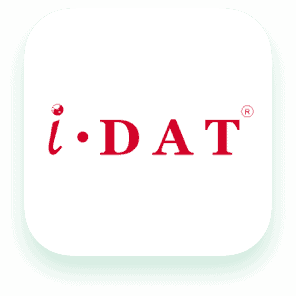
 All Services
All Services